
Germany and Europe Stepping Up – Security and Responsibility
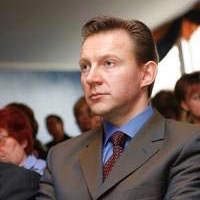
Alexey Gromyko
Russian Academy of Sciences
Alexey Gromyko is Director of the Institute of Europe of the Russian Academy of Sciences (IE RAS).

Enrico Fels
Dr. Enrico Fels is a Research Fellow at the Center for Global Studies, University of Bonn.
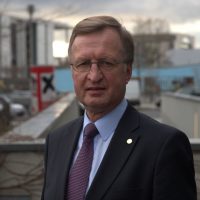
Heiner Brauss
Heinrich Brauss was NATO’s Assistant Secretary General for Defence Policy and Planning in 2013- 2018, having joined the International Staff of the North Atlantic Treaty Organisation (NATO) in September 2007 as Deputy Assistant Secretary General for Policy and Planning. Prior to joining NATO he served at the EU, first in the European Union Military Staff (EUMS) as Assistant Chief of Staff, Operations & Exercises Division and then as the Director of the Civilian/Military Cell and the EU Operations Centre. In 2001 he assumed command of an Armoured Brigade in Potsdam/Germany. He also deployed for operations in Bosnia and Herzegovina, where he served as Chief of Staff in the Headquarters of the Stabilisation Force (SFOR). Other appointments included, inter alia, Chief of Staff of a Mechanised Infantry Brigade and Commander of an Armoured Artillery Battalion. He first gained international experience as a member of the Staff of the German Military Representative in the Military Committee of NATO and EU/WEU in Brussels, where his responsibilities covered NATO’s strategy, enlargement, command and force planning. He also served as Branch Chief in the Planning and Advisory Staff to the former German Minister of Defence, Volker Rühe, in Bonn/Germany. He retired on 31 July 2018 after 46 years of service in the German Armed Forces. He holds the rank of Lieutenant General (retd.) in the German Armed Forces.

Jackson Janes
President Emeritus of AGI
Jackson Janes is the President Emeritus of the American-German Institute in Washington, DC, where he has been affiliated since 1989.
Dr. Janes has been engaged in German-American affairs in numerous capacities over many years. He has studied and taught in German universities in Freiburg, Giessen and Tübingen. He was the Director of the German-American Institute in Tübingen (1977-1980) and then directed the European office of The German Marshall Fund of the United States in Bonn (1980-1985). Before joining AICGS, he served as Director of Program Development at the University Center for International Studies at the University of Pittsburgh (1986-1988). He was also Chair of the German Speaking Areas in Europe Program at the Foreign Service Institute in Washington, DC, from 1999-2000 and is Honorary President of the International Association for the Study of German Politics .
Dr. Janes is a member of the Council on Foreign Relations, the International Institute for Strategic Studies, the Atlantic Council of the United States, and American Purpose. He serves on the advisory boards of the Berlin office of the American Jewish Committee, and the Beirat der Zeitschrift für Außen- und Sicherheitspolitik (ZfAS). He serves on the Selection Committee for the Bundeskanzler Fellowships for the Alexander von Humboldt Foundation.
Dr. Janes has lectured throughout Europe and the United States and has published extensively on issues dealing with Germany, German-American relations, and transatlantic affairs. In addition to regular commentary given to European and American news radio, he has appeared on CBS, CNN, C-SPAN, PBS, CBC, and is a frequent commentator on German television. Dr. Janes is listed in Who’s Who in America and Who’s Who in Education.
In 2005, Dr. Janes was awarded the Officer’s Cross of the Order of Merit of the Federal Republic of Germany, Germany’s highest civilian award.
Education:
Ph.D., International Relations, Claremont Graduate School, Claremont, California
M.A., Divinity School, University of Chicago
B.A., Sociology, Colgate University
Expertise:
Transatlantic relations, German-American relations, domestic German politics, German-EU relations, transatlantic affairs.
__
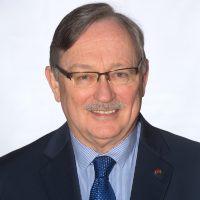
James D. Bindenagel
University of Bonn
James D. Bindenagel is a retired U.S. Ambassador, Henry-Kissinger-Professor (Emeritus) at Bonn University, and Senior Non-Resident Transatlantic Fellow at the German Marshall Fund of the United States. He has published: Germany: From Peace to Power? Can Germany Lead in Europe without Dominating it? (2020) and International Sicherheit im 21. Jahrhundert, Deutschlands Verantwortung (2015), both published by V&R Bonn for Bonn University.
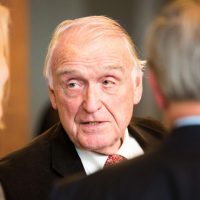
Karl Kaiser
Harvard University
Karl Kaiser is Adjunct Professor of Public Policy at the Kennedy School and Senior Associate of the Program on Transatlantic Relations of the Weatherhead Center for International Affairs at Harvard.
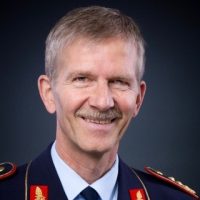
Martin Schelleis
Lt. Gen. Martin Schelleis is Chief of German Joint Support and Enabling Service in the Bundeswehr .
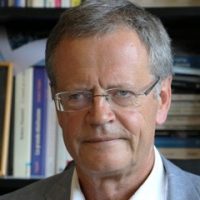
Pascal Boniface
French Institute for International and Strategic Affairs
Dr. Pascal Boniface is the founding Director of the French Institute for International and Strategic Affairs – IRIS, based in Paris.
He is professor of international relations in the “Institut d’Etudes européennes” (Institute for European Studies) in the University of Paris-8.
He is the Director of the quarterly journal “La Revue internationale et stratégique” (International and strategic review) since 1991, and the Editor of “L’Année stratégique” (Strategic Yearbook) since 1985.
Dr. Pascal BONIFACE has published or edited more than sixty books dealing with International Relations, Nuclear Deterrence and Disarmament, European Security, French International Policy, Sport in the International Relations (he developed the concept of Geopolitics of Sport) and also the conflict in the Middle-East and its impact in France. Many of them have become classics, reissued on a regular basis and translated in several languages.
Dr. Pascal BONIFACE publishes numerous articles in international and strategic reviews, is regularly present in the media, national and international, written and audiovisual, and gives many conferences in France and abroad. He’s one of the most followed geopolitical analysts on social networks (Facebook and Twitter). He also analyses international issues on his own YouTube channel and weekly podcasts « Comprendre le monde » (Understand the world), as well as on his blog (IRIS, Mediapart and personal).
Pascal Boniface is a member of the National Ethical Commission at the Fédération française du football (French Football Federation).
He has been made a Chevalier of the French Award for distinguished services in public and private capacity and Officier of the Legion of honour. He has received the “Prix Vauban” in 2011.

Peter S. Rashish
Vice President; Director, Geoeconomics Program
Peter S. Rashish, who counts over 30 years of experience counseling corporations, think tanks, foundations, and international organizations on transatlantic trade and economic strategy, is Vice President and Director of the Geoeconomics Program at AICGS. He also writes The Wider Atlantic blog.
Mr. Rashish has served as Vice President for Europe and Eurasia at the U.S. Chamber of Commerce, where he spearheaded the Chamber’s advocacy ahead of the launch of the Transatlantic Trade and Investment Partnership. Previously, Mr. Rashish was a Senior Advisor for Europe at McLarty Associates, Executive Vice President of the European Institute, and a staff member and consultant at the International Energy Agency, the World Bank, UN Trade and Development, the Atlantic Council, the Bertelsmann Foundation, and the German Marshall Fund.
Mr. Rashish has testified before the House Financial Services Subcommittee on International Monetary Policy and Trade and the House Foreign Affairs Subcommittee on Europe and Eurasia and has advised three U.S. presidential campaigns. He has been a featured speaker at the Munich Security Conference, the Aspen Ideas Festival, and the European Forum Alpbach and is a member of the Board of Directors of the Jean Monnet Institute in Paris and a Senior Advisor to the European Policy Centre in Brussels. His commentaries have been published in The New York Times, the Financial Times, The Wall Street Journal, Foreign Policy, and The National Interest, and he has appeared on PBS, CNBC, CNN, NPR, and the BBC.
He earned a BA from Harvard College and an MPhil in international relations from Oxford University. He speaks French, German, Italian, and Spanish.

Philippe Le Corre
Mossavar-Rahmani Center for Business and Government, Harvard Kennedy School
Philippe Le Corre is an affiliate with the Project on Europe and the Transatlantic Relationship and a senior fellow with Harvard Kennedy School's Mossavar-Rahmani Center on Business and Government at the Harvard Kennedy School. He is also a former fellow with the Belfer Center.
Philippe Le Corre's research interests include China’s geoeconomic rise, Sino-European and transatlantic relations, Chinese outbound foreign direct investments and competition in Eurasia and Asia-Pacific. From 2014 to 2017, he was a Visiting Fellow with The Brookings Institution in Washington D.C. Le Corre previously served as Special Assistant and Counsellor for international affairs to the French Minister of Defense and as senior policy analyst on Northeast Asia within the Ministry of Defense's directorate for strategy. He was also partner with Publicis Groupe, where he ran a team of consultants advising the Shanghai World Expo 2010. He started his career as a foreign correspondent based in Asia from 1988 to 1998.
Le Corre is the author of four books including China’s Offensive in Europe (Brookings Institution Press, 2016; Fayard, 2015), Tony Blair, les rendez-vous manqués (2004), Quand la Chine va au marché (Maxima, 1999), Après Hong Kong (Autrement, 1997). He contributed a chapter to the forthcoming volume Rethinking the Silk-Road - China's Belt and Road Initiative and Emerging Eurasian Relations (Palgrave-Macmillan, 2017). Le Corre is also the author or co-author of Brookings monographs China’s Global Rise: can the EU and US pursue a coordinated strategy? (October 2016) and France: A critical player in a weakened Europe (April 2017), as well as two relatively recent papers: China's rise: what about a transatlantic dialog? (Asia-Europe Journal, May 2017) and China abroad: the Long March to Europe (China Economic Quarterly, July 2016). Additionally, he has published in The Financial Times, The Wall Street Journal, Nikkei Asian Review, Journal of Commerce, China Perspective, Far Eastern Economic Review, South China Morning Post, Le Monde and Les Echos, among others, and appears regularly on CNN, CNBC, BBC, France 24 and Bloomberg TV.
Le Corre received his BA and MA in political science from the Sorbonne in Paris, and was a 2003-2004 Fellow with the Weatherhead Center for International Affairs (WCFIA) at Harvard. He was awarded a Sachs Scholarship for his WCFIA fellowship.

Tobias Fella
Friedrich-Ebert-Stiftung
Tobias Fella is policy adviser for European foreign, security and defense policy at the Friedrich-Ebert-Stiftung (FES) in Berlin. Previously, he served as a Fellow at the German Institute for International and Security Affairs (Stiftung Wissenschaft und Politik (SWP)) and was a project manager at the Hertie School of Governance. His research focuses on the idea of decline in US foreign policy thinking.
Report of the International Security Forum 2018
Are Germany and Europe stepping up to bear more responsibilities in international affairs as the United States withdraws from international leadership? What are the implications of a rising China for international order and security? And how can global governance and international order adapt to an emerging multipolar world as global balances of power shifting?
Comments and Perspectives
James D. Bindenagel: Making Germany More Strategic
Jackson Janes: Milestones with Mixed Messages: German-American Relations at 70
Pascal Boniface: Trump Reinvents Limited Sovereignty
Heinrich Brauss: Are Germany and Europe Stepping up? A NATO Perspective
Tobias Fella: The Response to Trump: Emancipation!
Alexey Gromyko: European Conference on European Security: Reasons and Arguments
Karl Kaiser: What Remains to be Done: Some Conclusions
Philippe Le Corre: Addressing China’s Global Strategy
Peter Rashish: It’s Time for More Realpolitik in Global Economic Governance
Martin Schelleis: Joint Support and Enabling Command (JSEC) and NATO Burdensharing








